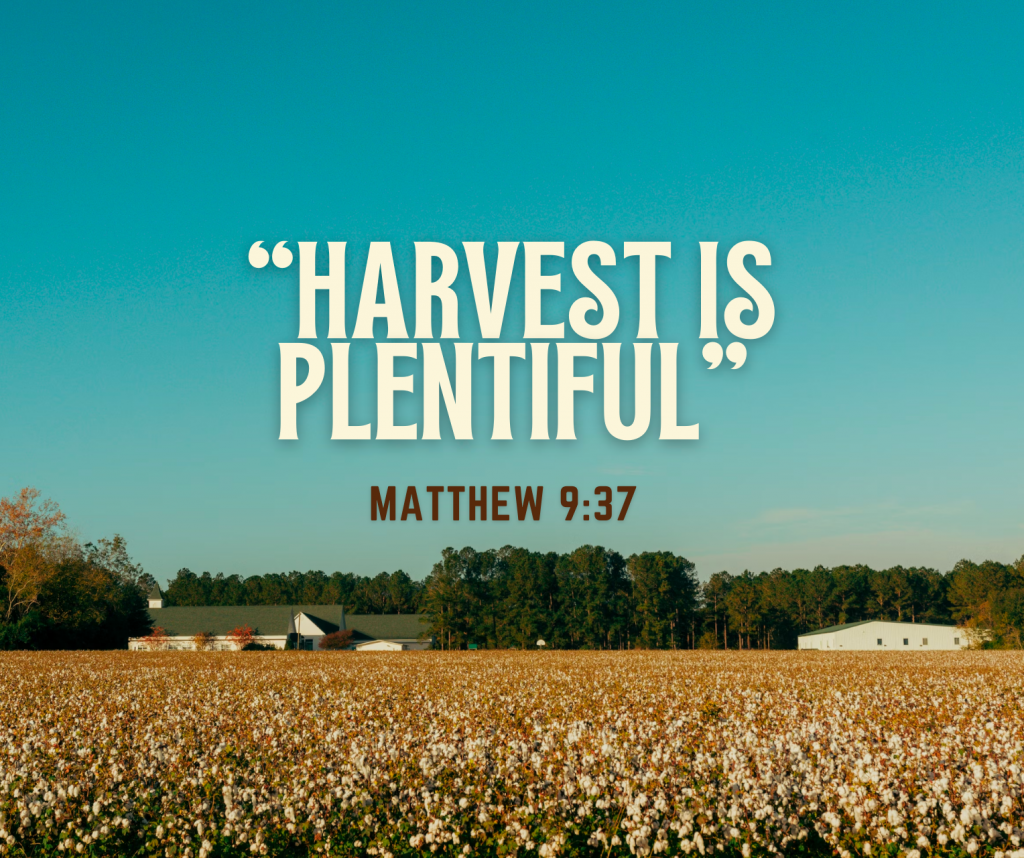
And Jesus went throughout all the cities and villages, teaching in their synagogues and proclaiming the gospel of the kingdom and healing every disease and every affliction. When he saw the crowds, he had compassion for them, because they were harassed and helpless, like sheep without a shepherd. Then he said to his disciples, “The harvest is plentiful, but the laborers are few; therefore pray earnestly to the Lord of the harvest to send out laborers into his harvest.” – Matthew 9:35-38
In Matthew 9:35-38, Matthew exemplifies three core ministries of Jesus on earth: teaching, preaching and healing. He demonstrates care for the crowds, likening them to sheep without a shepherd, and urges his disciples to pray for more laborers for the plentiful harvest. The concept of harvest symbolizes evangelism and the abundance of souls ready for spiritual reaping.
Similarly, Mark 1:38-39 highlights Jesus’ purpose of preaching the message of salvation, emphasizing his mission to spread the gospel.
John 4:35 offers a metaphor about the fields being white for harvest. “Do you not say, ‘There are yet four months, then comes the harvest’? Look, I tell you, lift up your eyes, and see that the fields are white for harvest.” This metaphor is complex, often puzzling biblical scholars.
Timely harvesting stands as a pivotal determinant in agricultural success across various crops like cotton and rice. When cotton bolls burst and fields turn white, signaling readiness, immediate harvest becomes imperative; delaying due to rain or missing this window due to frost risks ruining the year’s efforts.
In rice farming, using sickles to gather mature clusters at the precise moment is crucial, as any shortage of hands during this phase can deeply impact the harvest quality, causing great concern for farmers. Ensuring the timely cutting and threshing of rice prevents grain brittleness and breakage, preserving the integrity of the yield. Here, the universal truth prevails: the right timing for harvesting, whether it’s rice, wheat, or cotton, holds paramount importance for preserving crop quality and maximizing the harvest yield.
Drawing from agricultural practices, the analogy of harvesting underscores the importance of timeliness in reaping the fruits of evangelism. Just as farmers must harvest at the right moment to yield quality produce, Christians must seize the opportune time for spiritual harvesting.
Psalms 126 encapsulates the joyous return of the Israelites from Babylonian captivity. It celebrates restoration and acknowledges the toil of sowing seeds with tears, a metaphor for the hardships encountered in spiritual endeavors. The psalm reinforces the message that perseverance in sowing seeds—despite difficulties—leads to a bountiful harvest, echoing the sentiments of reaping with joy after sowing in tears.
“When the Lord restored the fortunes of Zion, we were like those who dream. Then our mouth was filled with laughter, and our tongue with shouts of joy; then they said among the nations, “The Lord has done great things for them.” The Lord has done great things for us; we are glad. Restore our fortunes, O Lord, like streams in the Negeb! Those who sow in tears shall reap with shouts of joy! He who goes out weeping, bearing the seed for sowing, shall come home with shouts of joy, bringing his sheaves with him.” – Psalms 126
For those emerging from a period of struggle, like the Israelites returning from captivity, the call is to sow diligently. Even amidst hardship, the promise lies in reaping with shouts of joy, emphasizing the enduring reward of persistent spiritual sowing.
